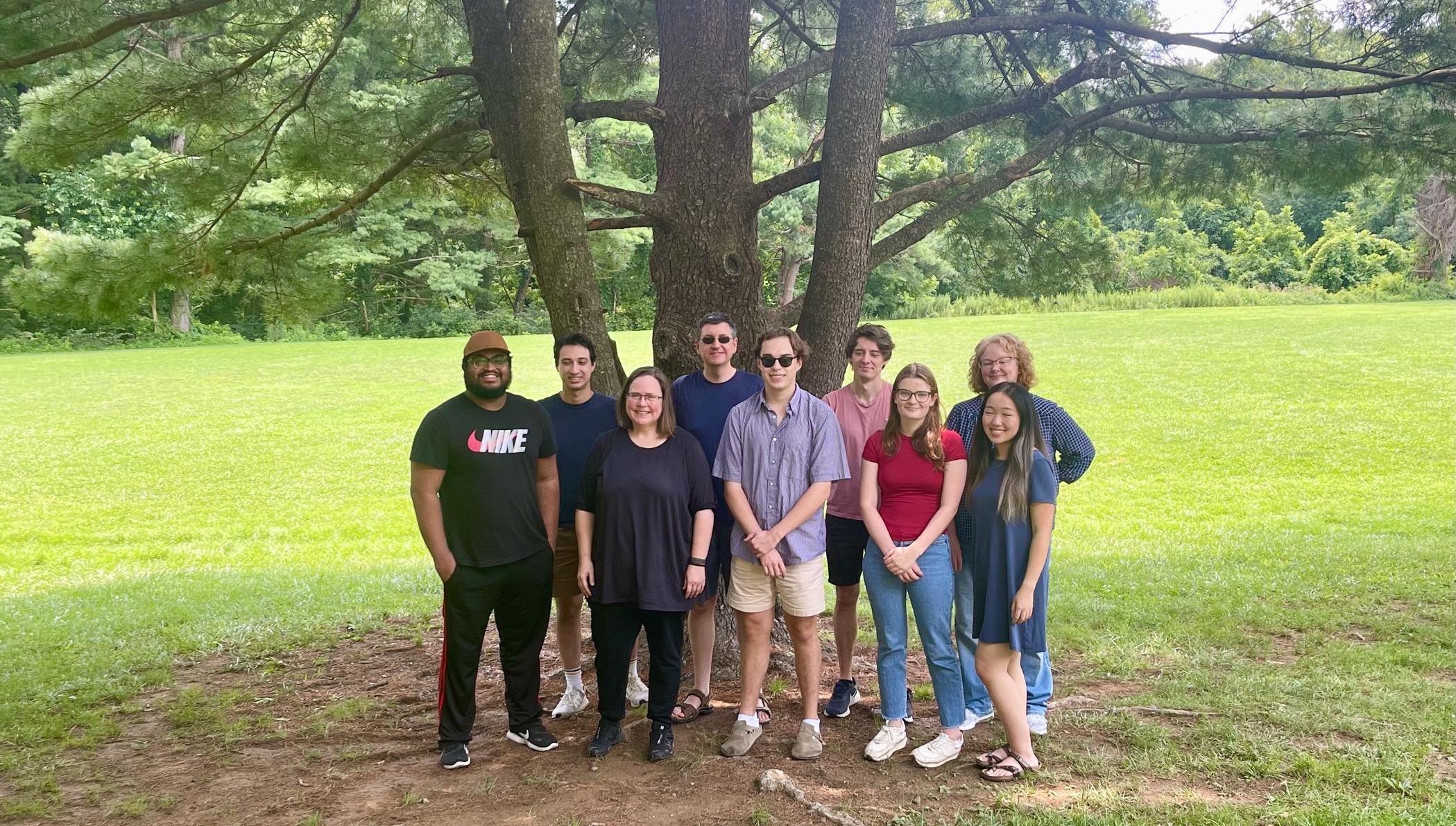
Jennifer Clare Jones, M.D., Ph.D.
- Center for Cancer Research
- National Cancer Institute
- Building 10-CRC, Room B2-3500
- Bethesda, MD 20892-5062
- 301-496-5457
- jennifer.jones2@nih.gov
RESEARCH SUMMARY
Dr. Jones (McIntire) positionally cloned the TIM gene family and demonstrated the genetic association between TIMs and immune response profiles (McIntire et al., Nature Immunology 2001, and Nature 2003). As a radiation oncologist, her current research is focused on developing immune-based therapies that synergize with radiation to produce optimal anti-tumor immune responses.
Tumor cells, immune cells, and irradiated tissues release large quantities of biologically active (and distinct) nanoscale extracellular vesicles (e.g., exosomes and microparticles). Dr. Jones is developing improved methods to characterize, sort, and perform functional studies of nanoparticles, and has established a translational EV analysis pipeline, with instrumentation for preparation, analysis, counting, and cytometric study of extracellular vesicles.
Current Translational Nanobiology Lab information, software, and protocols are found at our lab website: https://nano.ccr.cancer.gov/
Areas of Expertise

Jennifer Clare Jones, M.D., Ph.D.
Research
The Jones Lab has two primary research goals:
1) Developing optimal strategies for combining immune-based therapies with radiation to produce optimal anti-tumor immune responses.
2) Developing new ways to investigate (characterize and categorize) extracellular vesicles, as biological agents, biomarkers, and therapeutic targets. Tumor cells, immune cells, and irradiated tissues release large quantities of biologically active (and distinct) nanoscale extracellular vesicles (e.g., exosomes and microparticles). The Jones Lab combines leading edge technologies and new methods together in a cohesive translational pipeline to investigate extracellular vesicles. This research involves developing improved methods in three broad categories: 1) how samples are collected and processed, 2) establishing high-throughput and precise methods to characterize extracellular vesicles, and 3) utilizing extracellular vesicle data to better understand tumor- and immune-biology and to establish a foundation for next-generation EV-based personalized cancer treatment and monitoring.
Publications
Biography

Jennifer Clare Jones, M.D., Ph.D.
Dr. Jones received her M.D. and Ph.D. from Stanford University. She is a board-certified radiation oncologist specialized training in radiosurgery, with graduate and postdoctoral training in both cancer biology and general immunology.
Awards:
- Pamela Anne Cafritz Renal Cell Carcinoma Award, 2018
- Prostate Cancer Foundation Young Investigator Award, 2018 - present
- Federal Technology Transfer Awards, 2014 - 2018
- ASCO/AACR Methods in Clinical Cancer Trials Workshop Fellowship, 2011
- Stanford University Dean’s Postdoctoral Fellowship, 2011
- American Association for Women Radiologists (AAWR): Member-In-Training Award, 2008
- American Association of Immunologists Trainee Achievement Award, 2004
- Western Association for Medical Research Annual Meeting: Edwin E. Osgood Award, 1998
- American Academy of Allergy, Asthma, and Immunology (AAAAI): Travel Award, 1997
- Cum Laude, Princeton University, 1994
Job Vacancies
We have no open positions in our group at this time, please check back later.
To see all available positions at CCR, take a look at our Careers page. You can also subscribe to receive CCR's latest job and training opportunities in your inbox.
Team
News
Learn more about CCR research advances, new discoveries and more
on our news section.




